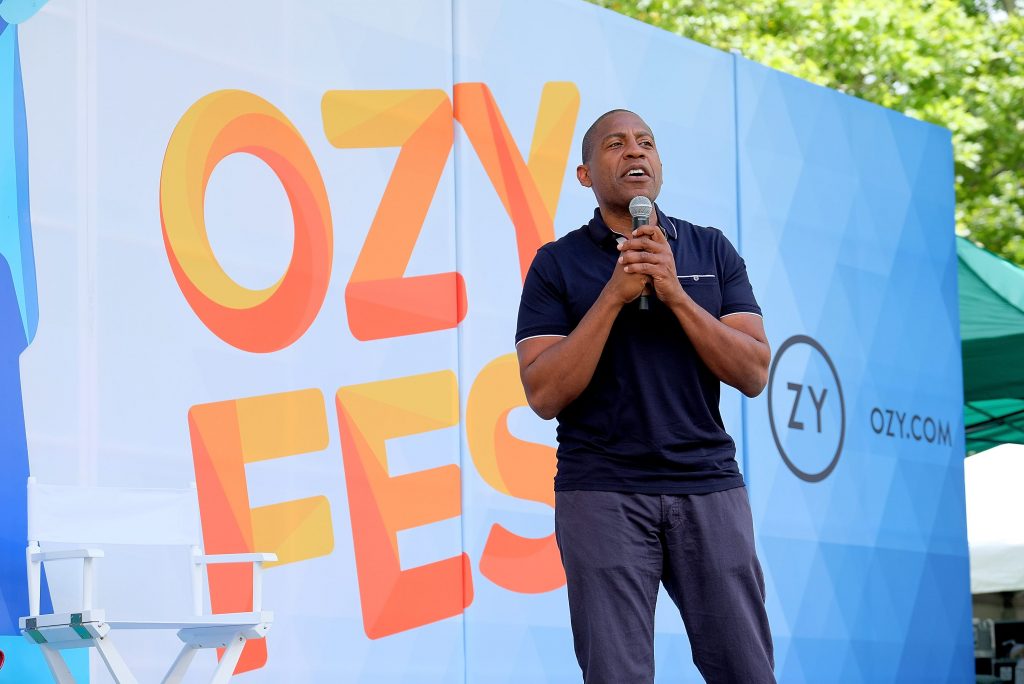Hello and welcome back to Insider Advertising, your weekly look at the biggest stories and trends affecting Madison Avenue and beyond. I'm Lara O'Reilly, Insider's media and advertising editor. If this was forwarded to you, sign up here.
Facebook is set for another busy week of headlines as it returns to the hot seat Thursday, with its security chief, Antigone Davis, due to testify before a Senate subcommittee about whether its products are harmful to children. Adding further fuel to the fire: The whistleblower who leaked The Wall Street Journal those juicy internal documents that helped form its explosive "Facebook Files" investigative series is set to be interviewed on CBS News' "60 Minutes" airing Sunday. The Senate is then expected to hear from a Facebook "whistleblower" – presumably the same one – on Tuesday.
Now on to this week's big ads news:
- Ad agencies and investors scrutinize Ozy
- Advertisers fear appearing in climate-crisis stories
- Sports-betting firms are ramping up their NFL advertising as they seek to gain market share
Ozy rules
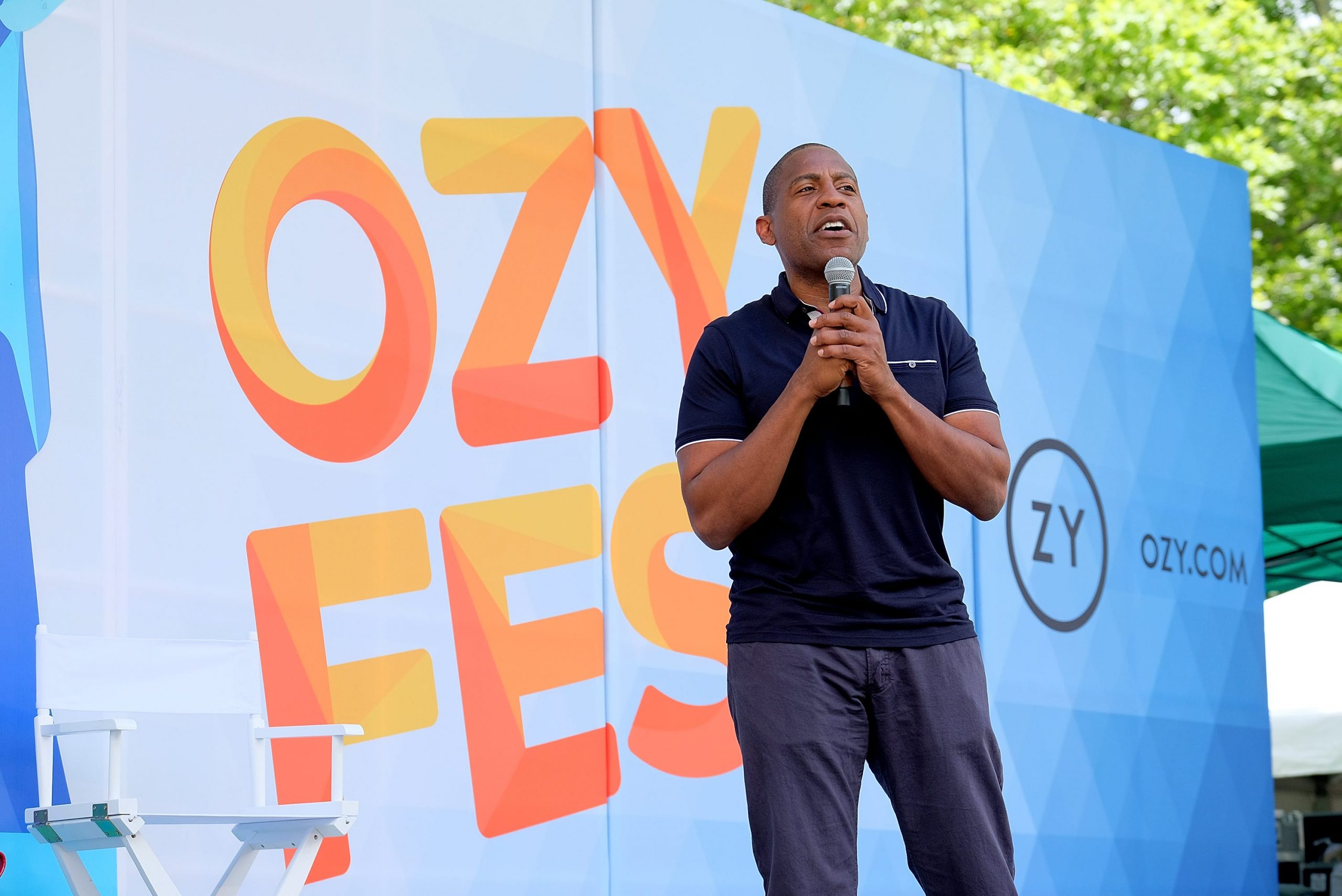
It's open season on an apparent open secret in media circles: At Ozy, all may not be as it seems.
A damning New York Times article this week called into question the media company's audience numbers and reported that the Ozy cofounder Samir Rao impersonated a YouTube executive on a call with Goldman Sachs.
Ozy faces an FBI investigation about that bizarre call. Its board has hired an outside law firm to investigate its business practices. One of its star journalists has resigned. An early investor has surrendered its shares in the company.
Ad agencies, too, are beginning to scrutinize its numbers, Insider's Claire Atkinson, Patrick Coffee, Lindsay Rittenhouse, and Tanya Dua reported. Ozy CEO Carlos Watson, pictured above, disputed to The Wrap that he inflated Ozy's figures; he hasn't responded to requests for comment from Insider.
For advertisers, this tale serves as another high-profile reminder to always check and double-check the dream being sold to them.
The tale gets more curious still. Aram Zucker-Scharff, an adtech engineer who says he once interviewed for a senior position at Ozy but walked away after realizing "nothing about the site made sense," took us on a journey this week of Ozy.com's adtech infrastructure using publicly available sources.
In short: There aren't a whole lot of ads there, beyond some newsletter sponsorships and its podcast and video partnerships, where presumably Ozy has to share a portion of any ad revenue with a third party. Yes, Ozy also makes money through TV deals (speaking of which, A&E on Monday also canceled the broadcast of a documentary hosted by Watson) and its events - but where's its ad money coming from?
New kids on the block
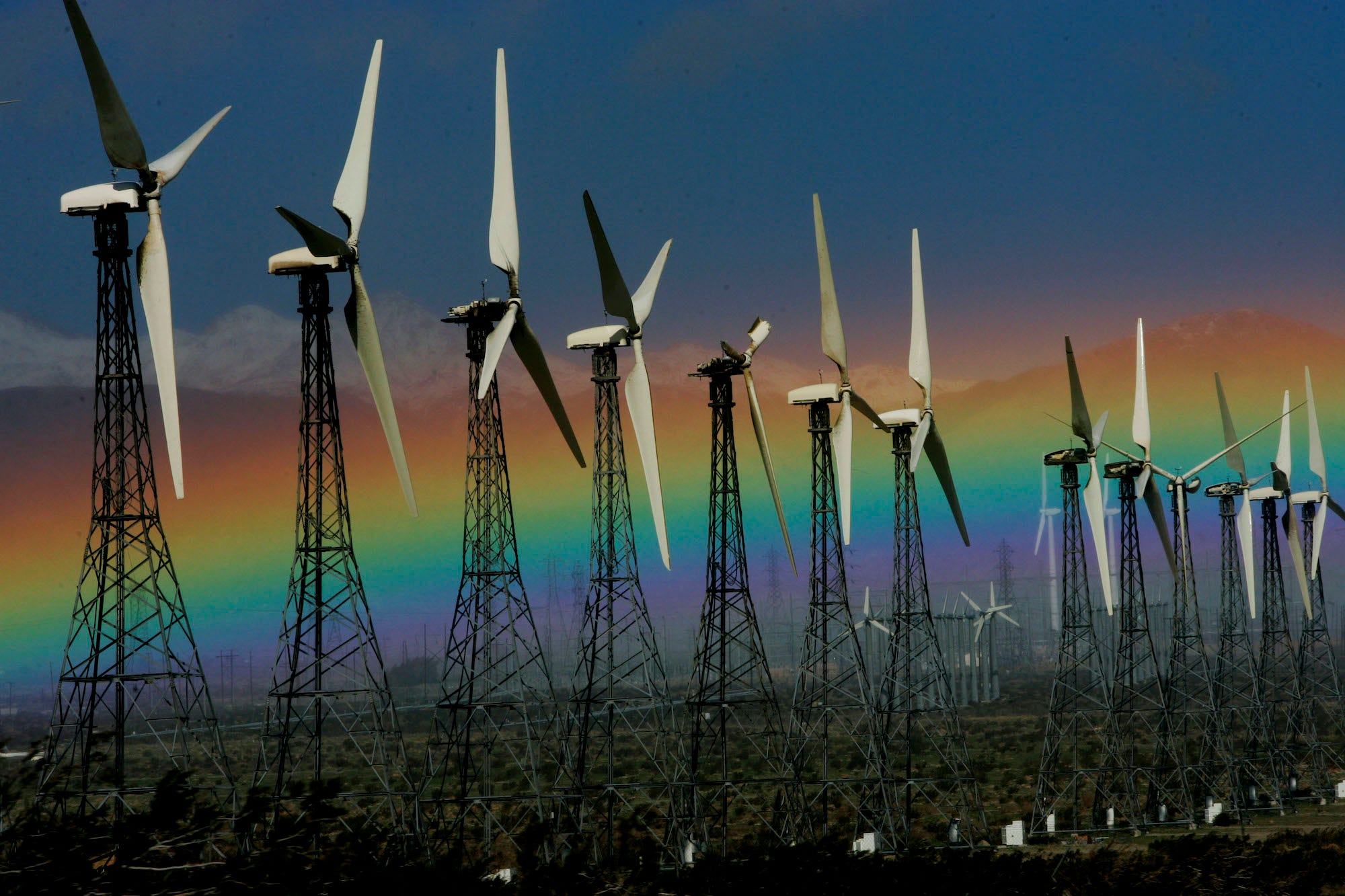
Sandy Huffaker/AP Photo
Advertisers' "fear of the screenshot" strikes again. As I reported for Insider, a not-insignificant number of keyword blocklists - which advertisers' brand-safety vendors use to prevent their ads from appearing next to website pages containing certain words or content categories - stretch so long as to include terms like "carbon footprint" and "greenhouse gas."
Such broad terms mean seemingly innocuous articles can get caught in the brand-safety net, too. It's an issue for media companies at a time when readers are consuming climate-crisis-related content more than ever and as newsrooms invest more in staffing up their science and environment desks.
The debate also continues about how "unsafe" it really is for a brand to appear adjacent to news. The Guardian, Havas, and the telco brand O2 recently ran a test to deliver ads to Guardian content deemed "safe" by brand-safety vendors and the other half against "risky" content. The "risky" content delivered almost nine times the level of brand lift, The Guardian's UK director of advertising, Adam Foley, wrote on LinkedIn last week.
Dilip Shukla, the managing director of the diversity-media network Brand Advance, told me that advertisers seeking to minimize their perceived risk could also reduce their opportunity to reach people effectively. "Brand-safety approaches don't seem to do very well at steering you away from misinformation sites, for example," Shukla said. "Therefore, what are you really being protected from?"
On that subject:
Bet the farm
The football season is well underway, and sports-betting advertisers are lapping up the NFL's recent change of heart on gambling. The league, which used to spend furiously lobbying against the practice, recently changed the rules to allow TV networks to sell a handful of ad spots a game to sportsbooks.
Sports-betting firms have wasted no time, data from the analytics platform AdImpact shows. The data, which covers broadcast ad occurrences in NFL broadcasts in the first two weeks of regular-season games, show that ad volume from sports-betting advertisers has increased almost threefold since last year.
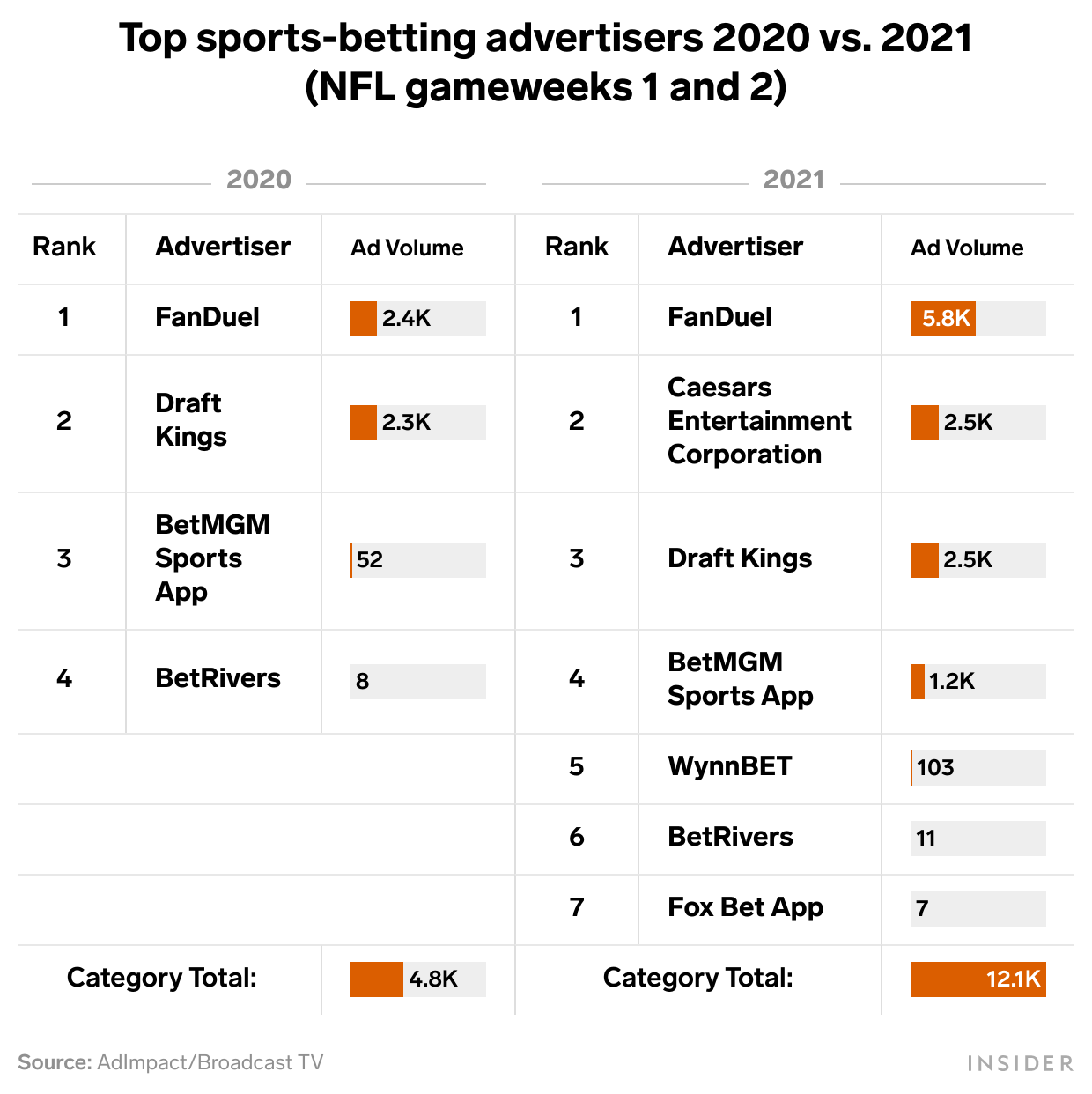
What's more, the volume of sports-betting ads during NFL games has narrowly overtaken the alcohol category - usually one of the top-spending sectors in sports, behind fast food, which is almost always No. 1, according to AdImpact.
Get up to speed:
- 10 sports-betting startups that top investors say are poised to take off as sportsbooks fight for market share
- 4 startup trends to watch in US sports gambling as the sector heats up, according to top investors
All the small things
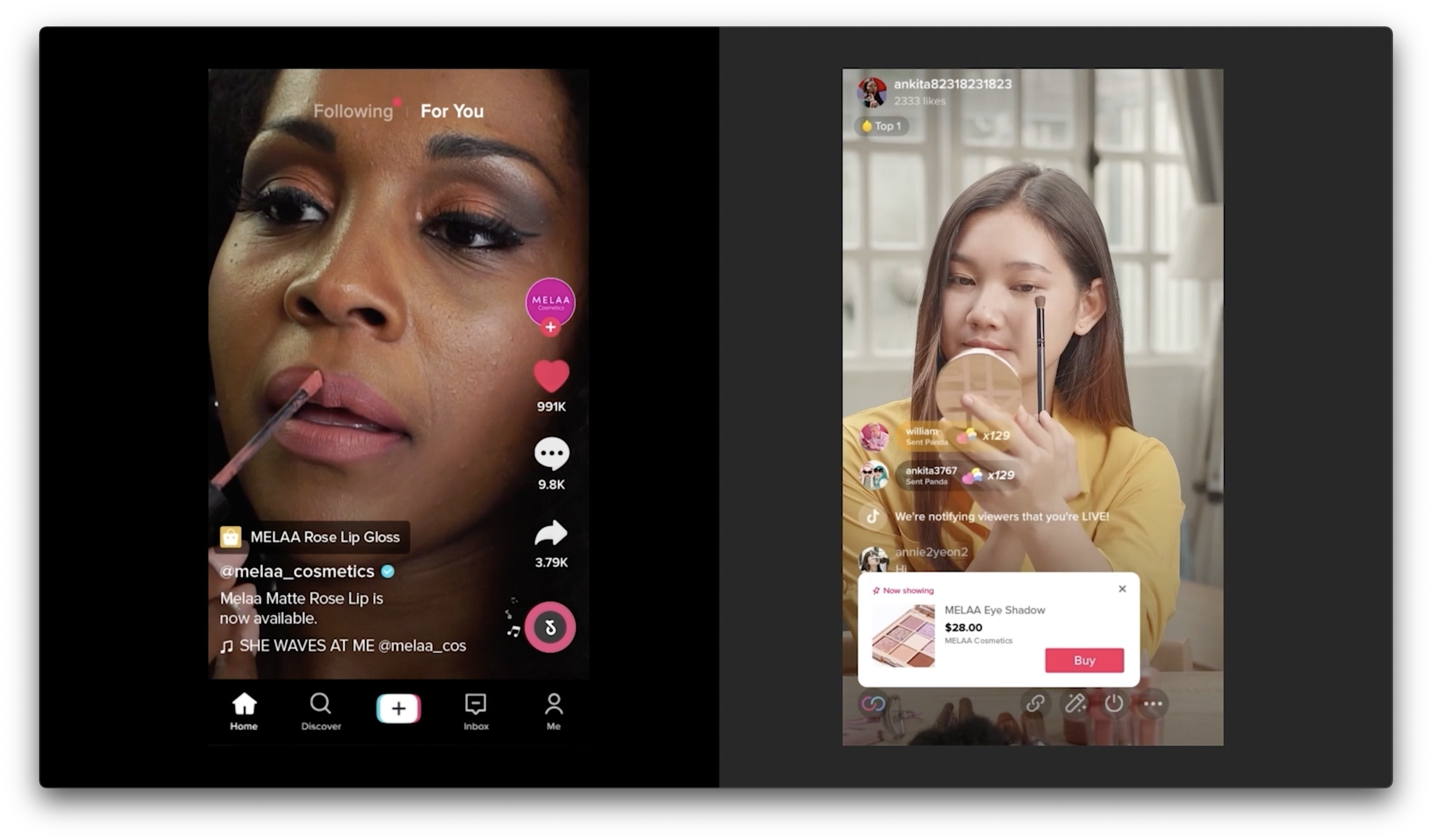
Anyone who's been following the rise of Google, Facebook, and Amazon will know that while it makes sense to woo the blue-chip advertisers early, the big bucks really come rolling in when the platforms can effectively cater to the small to midsize businesses.
TikTok this week made a host of advertising announcements at its inaugural TikTok World event. While most of those, like its new brand-safety partnerships, were geared largely toward major marketers, other announcements like its shopping solutions - where it's working with partners like Shopify and PrestaShop that have drawn big customer bases of direct-to-consumer brands - hint at its SMB ambitions.
Other platforms have also made recent changes to court smaller advertisers, Insider reported.
EBay might already have a $1 billion ad business, but it's just rolled out cost-per-click ads, Insider's senior reporter Lauren Johnson reported. It's the type of inventory that's standard on e-commerce sites like Amazon and Walmart and particularly popular with businesses that have modest ad budgets.
Elsewhere, Insider's senior reporter Tanya Dua reported that the entertainment company Fandom released a self-serve platform for small and midsize advertisers to tap into its audience of ardent entertainment and gaming fans.
Recommended reading
WPP will pay $19 million to resolve a Securities and Exchange Commission investigation that alleged it violated the Foreign Corrupt Practices Act after it rapidly expanded into India, China, Brazil, and Peru but didn't put in place adequate controls to prevent corruption in those regions - Wall Street Journal
Insurance giant Liberty Mutual is seeking a new agency to handle its $435 million US ad business - Insider
A look at how Uber eschewed linear-TV ads in favor of digital and pivoted its marketing to focus on its delivery business during the pandemic - Insider
Macy's filed a lawsuit last week in a bid to prevent Amazon from advertising on the billboard that wraps around its flagship Herald Square store in New York City - New York Times
US ad spend is projected to grow 23% this year and hit $278 billion, according to Magna's latest quarterly forecast - Adweek
Sponsored event invite: Sophisticated marketers know their customers are more than a list of demographic data and past purchase decisions. Join the best-selling author David Allison and PayPal's Carol Hargrave on Thursday, October 7, at noon ET to learn how marketers reach customers based on core values. Register here.
That's all for now, see you next week - Lara

